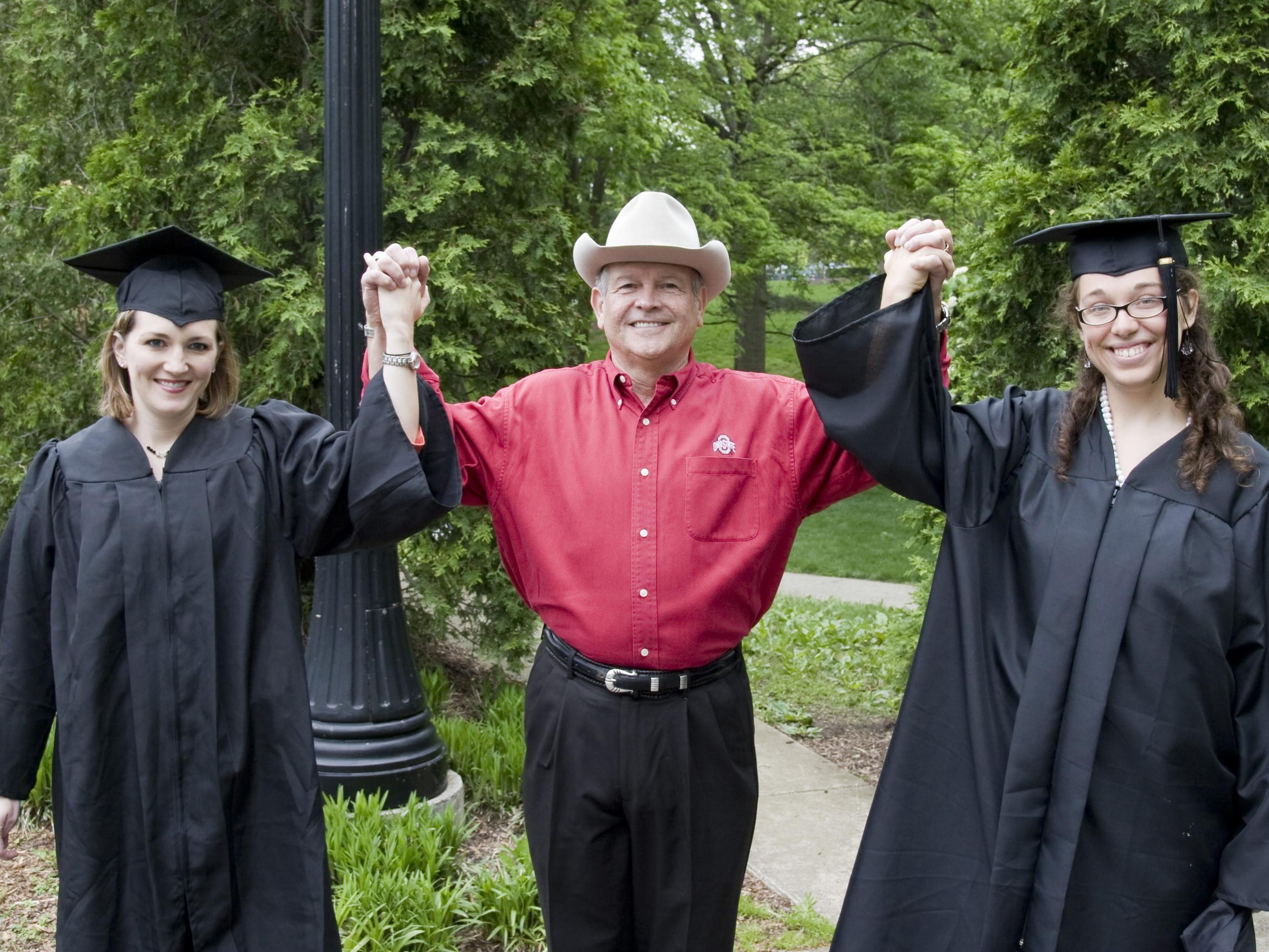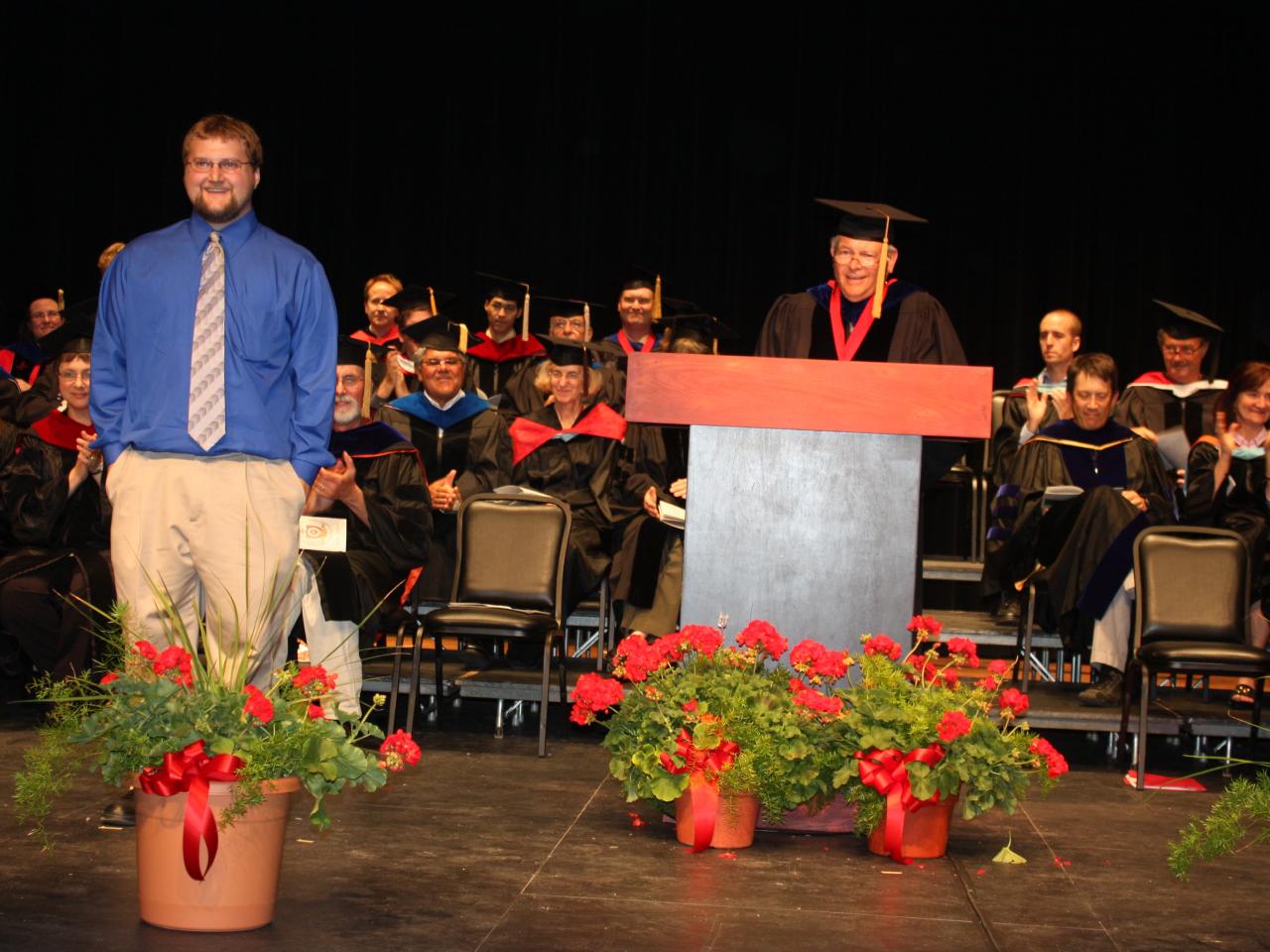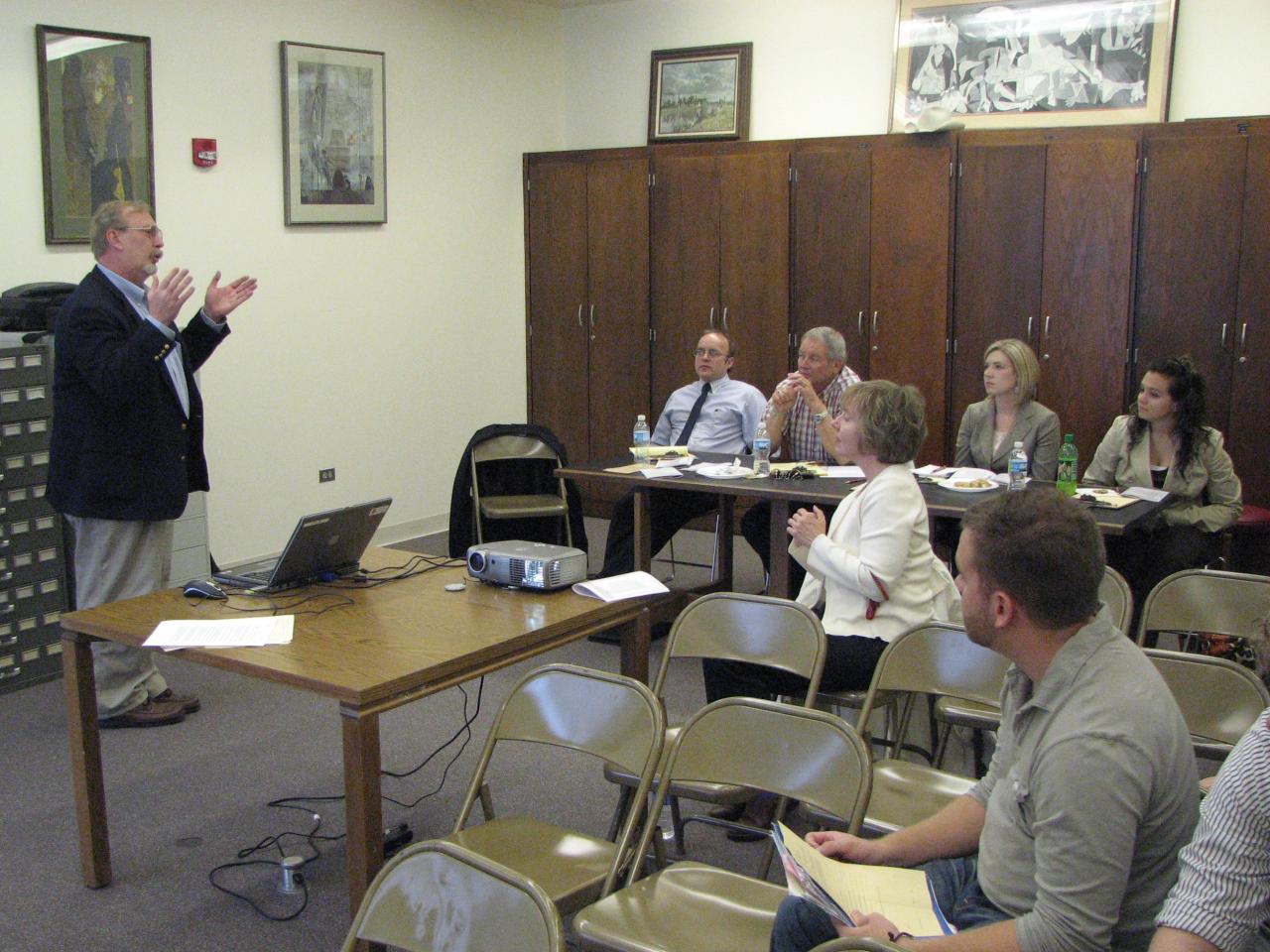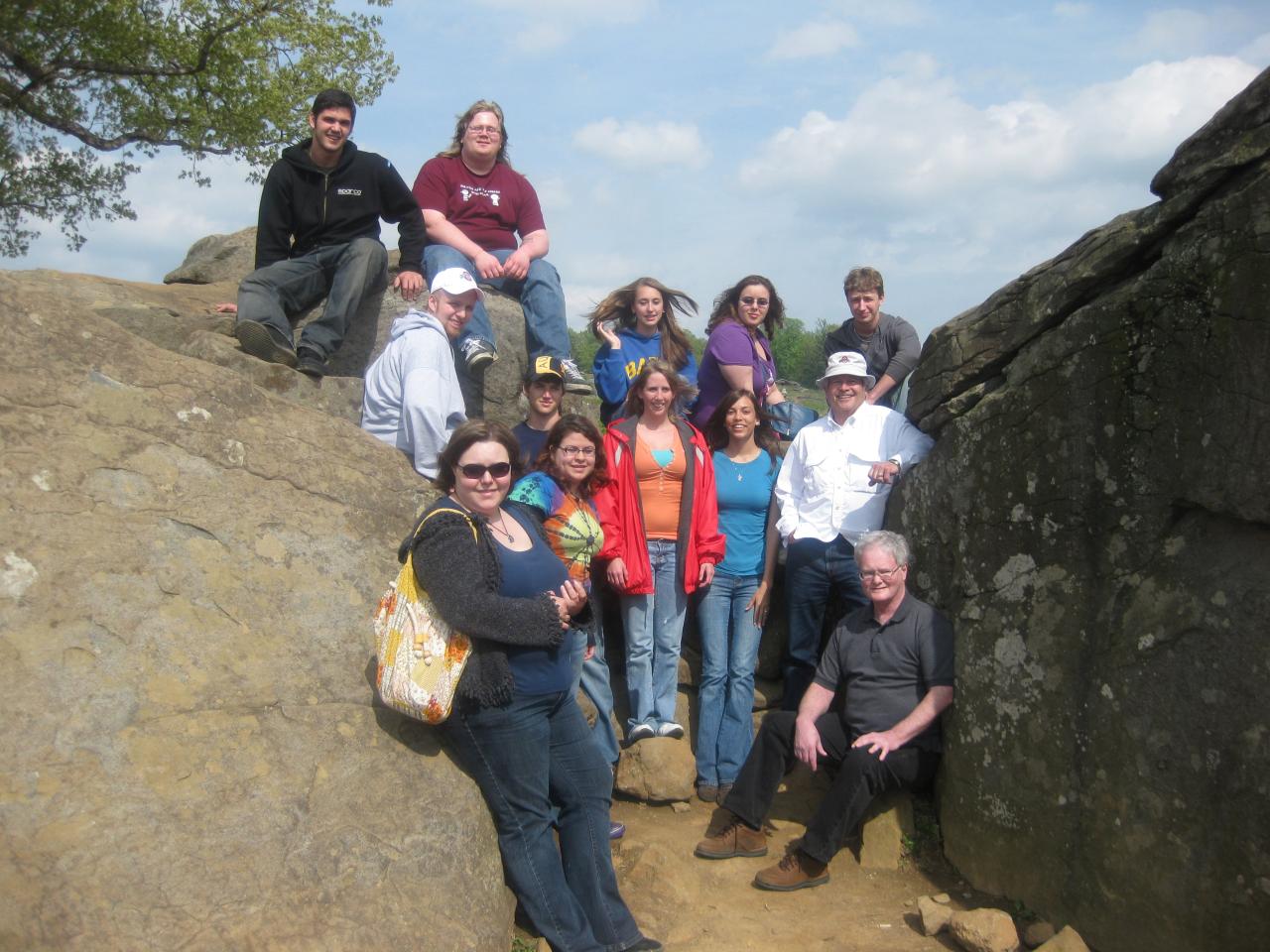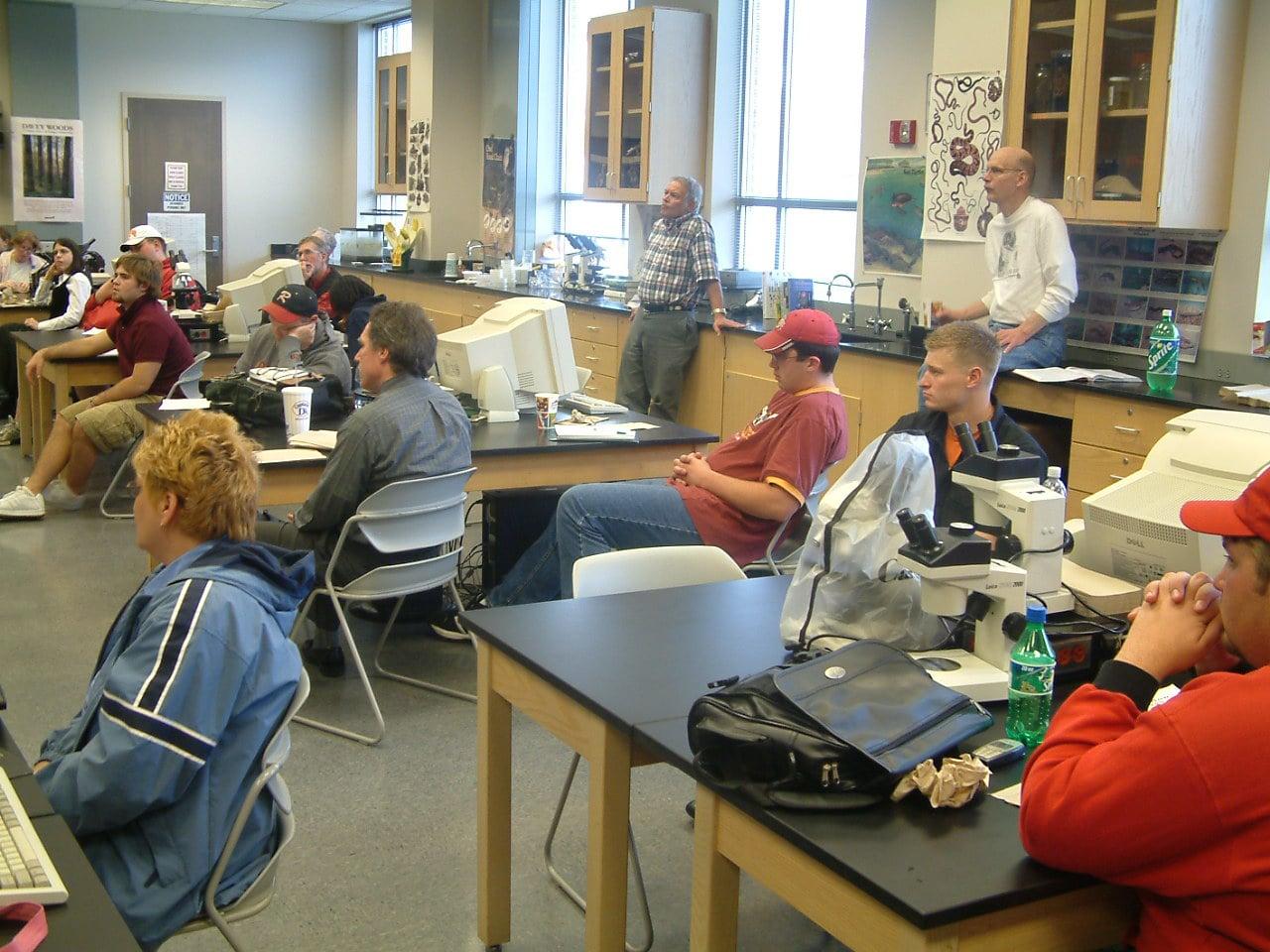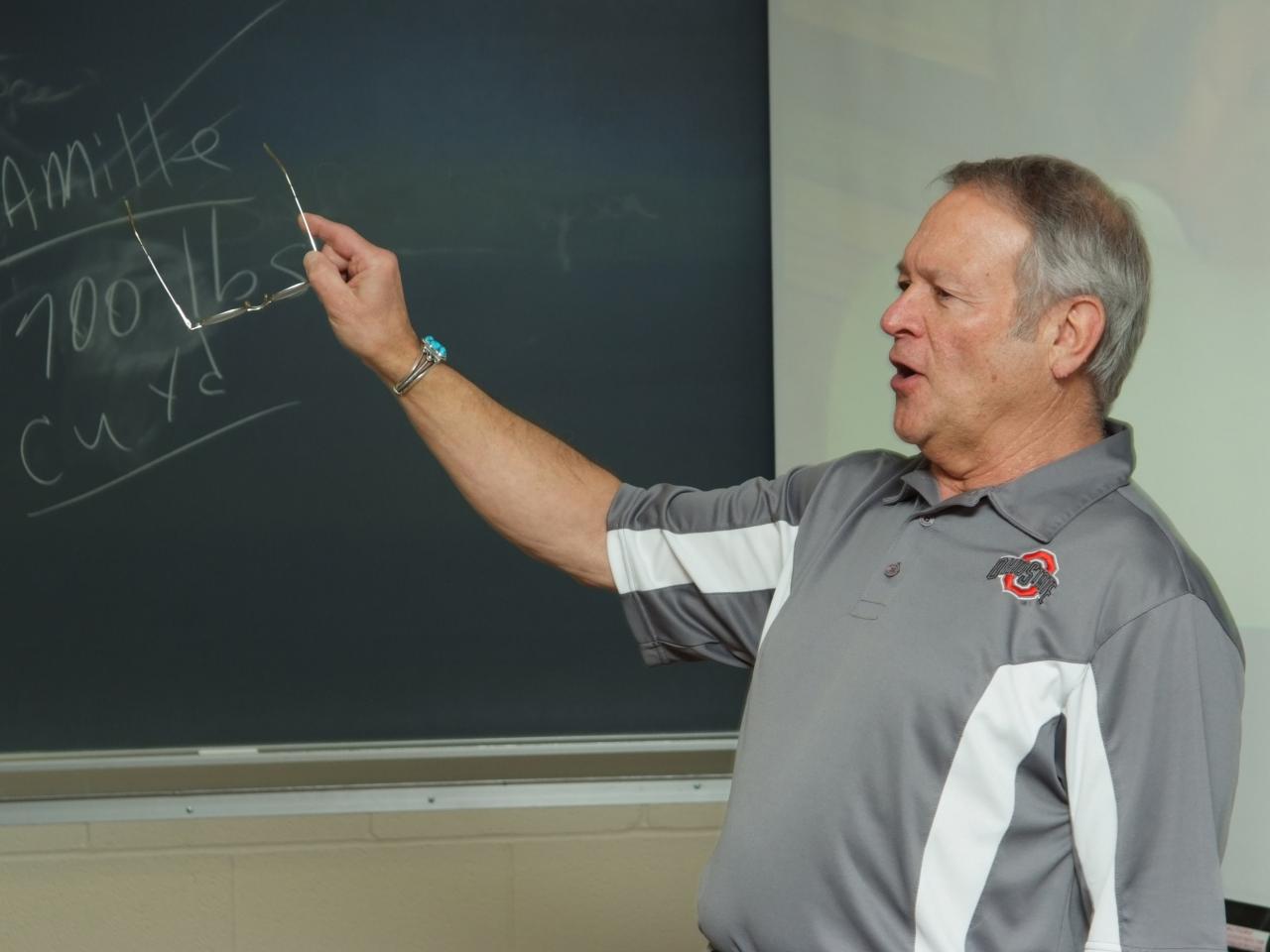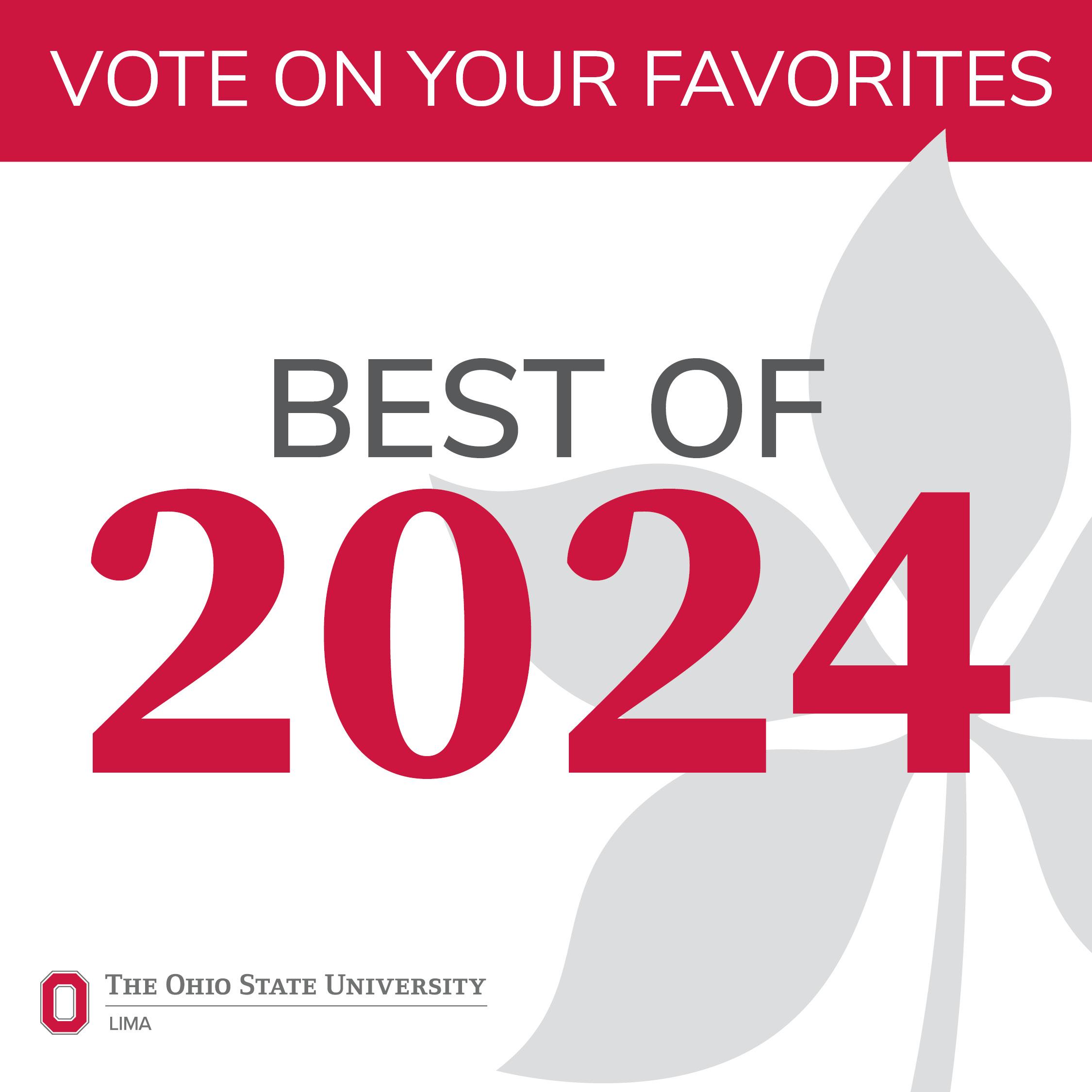When William Ackerman made up his mind to come back to teaching after taking some time off to stabilize the family banking business following his dad’s death, he started by looking closer to his Wyoming home, but those institutions weren’t offering what he wanted – the opportunity to teach and do research. He found it at The Ohio State University at Lima, a regional campus of his alma mater.
“I was committed to teaching. And what I liked about the Lima campus was that I was going to be able to teach and still have time to do research, which I still like,” Ackerman said. “That was a big thing, a chance to do both. Plus it was kind of like going home in a way. Ohio State was a place where I had always been treated well. And I was looking forward to going there.”
The choice was a good fit for him and a good fit for the campus. Ackerman would go on to earn the Alumni Award for Distinguished Teaching and do community research that would make a long-term mark on policing and land use in the City of Lima.
The most important component in both the teaching and the research was his undergraduate students. Now retired, Dr. Ackerman has decided to put his money where his heart is. He is supporting the Honors Program at Ohio State Lima with a $250,000 planned gift. He anticipates that the new fund will throw off more in a year than his budget for the same program when he was its director in the early 2000s.
With his gift, he will be approaching the Honors Program much as he did as an active participant. He is providing opportunities for bright, willing and motivated students to stretch their wings and comfort zones to do and see and learn.
“That is part of what a regional campus is for. It is to bring the people together who see the light of knowledge out there and want to be a part of it and we make it possible,” said Violet I. Meek, Ohio State Lima’s dean and director when Ackerman became involved with honors. “If we can keep our light bright enough through honors programs, people will find us. And then they will find here other brains that are just as good as theirs. They will know that they are not alone.”
Roger Nimps was teaching in the history department when Ackerman and biology professors Mike Cunningham and Eric Juterbock started building the Lima Honors Program on a more egalitarian model that brought in students who were willing to work hard at their educations, but may not have realized their own potential.
“The experiment worked extraordinarily well. Students who may have never considered themselves honors students excelled in classes and experienced subjects in a way that resonated far into their futures,” said Nimps, now a retired history lecturer, assistant dean and leader of more than 20 honors courses. “They may have pursued careers in business, or medicine, or engineering, but they will remember their honors history, or biology, or geology, or geography courses, and carry that greater understanding of their world always.”
During Ackerman’s honor’s tenure, students and their faculty members visited museums, battlefields and other places of national import; talked to authors and experts; explored biodiversity in the Everglades, read and discussed books on significant topics during an annual honors book seminar; and had experiences that tied what they were learning in the classroom to the wider world.
“Honors field trips gave students the opportunity to put themselves in places of historical significance that they had studied as an academic subject; they had the chance to stand on the banks of the Ohio River and imagine what it was like to be an escaped slave running for one’s life, or to look across that vast open field at Gettysburg and come to grips with the terror and futility of Pickett’s Charge,” said Allison B. Gilmore, retired history professor and associate dean. “Field trips and book seminars combined to give students a far greater appreciation for the impact of the things they were studying in the classroom.”
In his honors geography courses, Ackerman’s enrichment method often involved his students in his research. In 2010, that community research earned an honorable mention for the prestigious regional Outreach Scholarship W.K. Kellogg Foundation Engagement Award and the C. Peter Magrath University Community Engagement Award. The recognition centered around research across the geographic spectrum in Lima. Student-involved studies gave city leaders a better understanding of the spatial dynamics of crime and led to decisions to implement community policing in the City of Lima. When a community group wanted a parcel-by-parcel land use analysis ahead of a possible redevelopment of a large segment of a neighborhood, Ackerman organized a group studies course for honors students to engage in the community outreach project.
“Our goal was to give these students an opportunity to go beyond what you could do in regular classroom activities and expose them to new ideas,” Ackerman said. “We got a chance to investigate a little deeper into things and actually get some real world experience working on projects and doing research that furthered the needs of the community as well as the learning ability of the students.”
Those opportunities and experiences have paid off time and time again. Honors students from Ohio State Lima have graduated with honors and research distinction, successfully competed at research forums, presented at professional conferences, and gone on to productive and rewarding careers. In 2008, honors student Nellie Smith was chosen as one of only 25 seniors to be inducted into Ohio State’s SPHINX Senior Honorary each year.
“When Nellie was linked into the SPHINX, I was delighted but not surprised. Ohio State Lima students can compete with anyone academically,” Ackerman said.
When she nominated him to be an honorary member in 2009, making him one of the first and only regional campus faculty representatives in the group, it was a highlight in a career full of academic honors.
The students at Ohio State Lima with their practicality, common sense and strong work ethics are what Ackerman always comes back to. Looking forward, he wants the program to have the resources to build a strong, cohesive group of student learners from across the disciplines who push the whole campus to be more curious and dedicated scholars.
“There were kids that worked and they had their feet on the ground and they weren't afraid of anything. So that is the thing I always was impressed by them. They were not like, ‘Well, I cannot do this. I cannot do that.’” Ackerman said. “You know what they said? Let’s do it. So, you just give them the opportunity to do these things.”
* * *
Dr. William Ackerman earned his PhD in geography from The Ohio State University in 1972. He taught geography from 1993-2012 at Ohio State Lima, where he also served as honors director and associate dean. While on campus, he won the Alumni Award for Distinguished Teaching, the Lima Campus Outstanding Research Award, the Lima Teaching Award and the Violet I. Meek Town and Gown Award. He served on the Ohio State Lima Board and as the president of the Faculty Assembly.
